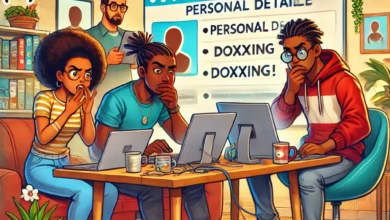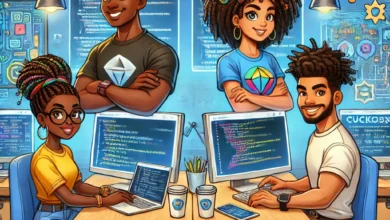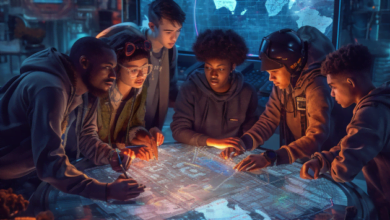Digital Literacy 101: Thriving in the Digital Era
Master the Essential Skills for a Confident Digital Experience

In our fast-paced, interconnected age, digital literacy is more than a convenience—it’s a necessity. Digital literacy is not just about understanding tech jargon; it’s about using technology to access, interpret, create, and share information effectively. This guide will dive into the core aspects of digital literacy, illustrating how you can hone these skills to prosper in a digitized world.
Unpacking Digital Literacy
More than just a buzzword, digital literacy is a comprehensive suite of skills that allows individuals to function competently and confidently within the digital sphere. It covers everything from understanding tech basics to assessing online information critically and ensuring personal digital security.
Why Digital Literacy Matters:
In the modern age, possessing digital literacy skills is akin to having a key to a vast library. It provides the means to access endless information, foster global communications, and adapt fluidly to technological advancements. Furthermore, it bridges socio-technological gaps, creating a more inclusive digital community for everyone.
Cultivating Your Digital Proficiency
- Efficient Internet Usage: Delve into effective web browsing, refine search techniques, and assess the trustworthiness of online information.
- Prioritizing Online Privacy: Equip yourself with tactics for safeguarding personal data, devising robust passwords, and discerning potential online scams.
- Sharpening Information Literacy: Develop the acumen to distinguish credible sources from the chaff. Recognize biases, fake news, and potential misinformation.
- Digital Communication Mastery: Upgrade your online communication, be it through professional emails, social media interactions, or collaborative digital platforms.
- Content Creation and Management: Familiarize yourself with creating diverse digital content, respecting copyright norms, and ensuring proper citation.
- Navigating Online Communities: Engage responsibly in digital spaces, promoting constructive discussions and practicing exemplary digital citizenship.
- Managing Your Digital Persona: Recognize the lasting nature of your digital footprint. Curate a positive online image while understanding and managing privacy settings.
- Exploration of Digital Tools: Stay abreast with tools and apps pertinent to your personal or professional growth—be it for creativity, organization, or continuous learning.
- Commitment to Continuous Learning: In a realm as dynamic as the digital world, perpetual learning isn’t a luxury—it’s a necessity. Keep yourself updated with tech trends and sector-specific advancements.
- Promoting Digital Wellness: Balance is crucial. Set tech boundaries, ensure periodic digital detoxes, and cherish offline relationships just as much.
In essence, digital literacy is the linchpin for flourishing in our increasingly online-centric world. It’s not merely about using tools; it’s about leveraging them to enrich personal and professional lives. By investing in digital literacy, you’re setting yourself up for a lifetime of informed, secure, and meaningful digital interactions. Embrace this digital odyssey with the right skills and a spirit of continuous learning.
Case Studies: The Real-World Implications of Digital Illiteracy:
Understanding the potential pitfalls of the digital realm is best illustrated through real-life events. These stories underline the significance of being digitally literate.
- The Phishing Scam: In 2016, an employee at a reputed tech company received an email, purportedly from the CEO, requesting wire transfers amounting to millions. Without verifying the email’s authenticity, the employee complied. It later emerged that the email was a scam, with the company losing vast sums. This incident underlines the importance of digital communication mastery and understanding online privacy.
- Misinformation Spread: In 2018, a false story about a celebrity’s death went viral, leading to public outpourings of grief. Based on unverified sources, this news was later debunked, but not before causing considerable distress. This event highlights the pressing need for sharpening information literacy skills.
- Digital Footprint Mismanagement: A college student’s older social media posts, which were controversial and offensive, resurfaced during their job application process, leading to job offer retractions. The incident serves as a grim reminder of the indelible nature of our digital footprints.
Delving Deeper into Digital Literacy Skills:
- Efficient Internet Usage: Beyond just Googling, advanced search operators can refine your search. For instance, using quotation marks around phrases can yield more exact matches. Familiarity with reputable databases, academic journals, and resources like Google Scholar can further enhance the quality of information retrieval.
- Prioritizing Online Privacy: Beyond strong passwords, consider tools like password managers, which encrypt and store complex password combinations, further safeguarding your online presence.
- Digital Communication Mastery: Recognize potential email scams by looking for generic greetings, unsolicited attachments, and slight deviations in domain names. Implement tools like email filters and verified sender badges to safeguard against phishing attempts.
- Content Creation and Management: Use platforms like Grammarly to ensure content accuracy and clarity. For creative projects, tools like Canva or Adobe Creative Suite can enhance the quality of digital creations.
- Navigating Online Communities: Familiarize yourself with platform-specific norms and codes of conduct. Platforms like Reddit or Quora have their own sets of rules that users are expected to abide by.
- Promoting Digital Wellness: Consider tech solutions to manage screen time, like apps that track usage and provide reminders to take breaks. Regular digital detox routines, even if just for a weekend, can also aid mental well-being.
Future Implications of Digital Literacy:
As the digital frontier continues to expand, the lines between reality and the digital realm will increasingly blur. Virtual Reality (VR), Augmented Reality (AR), and advancements in artificial intelligence will redefine our digital experiences. Being digitally literate now will ease the transition into these future digital paradigms, ensuring that individuals aren’t left behind but instead are equipped to harness these technologies’ full potential.
The Digital Age and You
The digital age, with its vast expanse of opportunities and challenges, isn’t a fleeting era but the very fabric of our modern existence. Digital literacy, therefore, is not just an advantageous skill but a vital life tool akin to reading or writing. As we’ve navigated through the complexities of this topic, from understanding the facets of digital literacy to confronting real-world implications of its absence, one thing becomes abundantly clear: staying ahead requires proactive learning.
Incorporating digital literacy into our lives isn’t about becoming tech experts overnight. It’s about fostering a mindset of curiosity and adaptability. It’s about understanding that the digital realm, much like the real world, requires us to be cautious, thoughtful, and responsible. By embracing these skills and continually refining them, we not only safeguard our digital journeys but also open doors to uncharted territories ripe with possibilities.
The narratives, examples, and tips discussed serve as your compass in the digital wilderness. Armed with this knowledge, remember to frequently revisit and update your skills, for the digital landscape is ever-evolving. And as you stride forward, know that every click, swipe, and keystroke is a step towards mastering the vast and wondrous digital world that surrounds us.




